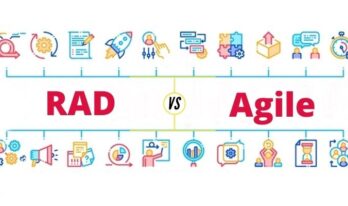There are a lot of benefits of moving to the cloud. Cloud computing is trending today. Due to the pandemic, a lot of organizations have moved to the cloud to ensure business continuity. As per the reports from Flexera, 50% of decision-makers have confirmed that the usage of the cloud will increase.
The process of moving to the cloud is called cloud migration. The on-premise servers and IT infrastructure are moved to the cloud in the process. To understand the benefits of the cloud we will first have a look at the basic information regarding the cloud.
What are the benefits of moving to the cloud?
Cloud-based Services
Cloud computing consists of three main services. All three services vary from each other as per the business needs.
Software as a Service (SaaS): This service provides third party software over the internet. For instance, Google Apps, Salesforce, MailChimp, Hubspot.
Platform as a Service (PaaS): This service provides hardware and software tools for development. For instance, Windows Azure, Force.com, Apache OpenShift etc.
Infrastructure as a Service (IaaS): It provides cloud infrastructure for the organization. It provides a pay-as-you-go model in which organizations and businesses can be able to use the infrastructure as per their requirements. For instance, Google Compute Engine (GCE), Digital Ocean, Rackspace, etc.
On-premises: On-premises are servers and data centres installed at a business location.
Cloud Computing types
There are three main types of cloud computing. These types differ in how the data is accessed.
Public cloud
The public cloud provides the data on the internet. This data can be accessed by anyone using cloud services. For instance, Facebook, LinkedIn are the best example of public cloud. Most of the clouds are free for customers and some provide subscription plans.
Private cloud
Private clouds are only for corporate use. Each cloud serves a single organization and does not allow access to users outside the organization.
Hybrid cloud
It is a mixture of public and private clouds. This cloud provides features of both private and public cloud. Large organizations use a hybrid cloud to store their important data in the private cloud and the rest of the services in the public cloud.
Benefits of moving to the cloud
Moving to a cloud system is essential for many businesses. Some might think that moving to the cloud is risky for data loss but a proper cloud backup and storage solution is necessary for improving the business in many aspects. Here are some benefits of moving to the cloud.
Flexibility
Cloud has a vast storage space. It also provides solutions for business as per the requirement. These solutions are employee efficient as well customer satisfying. The flexible storage allows businesses to expand as per their requirements. Employees can work together efficiently because all the required resources and data are available on the cloud.
Reliability
Cloud is reliable because when a server is down we can still access the data and resources from another server. Therefore, cloud keeps the data and resources safe even if the server is down.
Cost-saving
Moving to the cloud is a good investment for businesses. All the data and resources are kept in one place and only the organization can have the access to them, this will not only save money but it will also save time.
Moving to the cloud will also minimize the cost of hardware for IT infrastructure. Therefore, businesses save the maintenance cost of the server. You don't need an IT person to manage the server.
Also, the cloud provides pay-as-you-go services where you will pay only for the features your business is needed. Therefore, Organization does not have to waste money on resources that they are not using.
Ease of access
As all the data and resources are available on the cloud, it makes it easy to access them from anywhere on any device. Employees can now access the data from their portable devices. With this benefit, employees can work remotely and this will help those employees who travel frequently. Ease of access increases productivity as well as improves employee satisfaction.
Reduced Risk of Data Loss
When all your data and resources are moved to the cloud, you can access them even if your Desktop or laptop fails to operate. Cloud computing also provides some solutions for data recovery and protection.
For instance, Cloud computing offers a disaster recovery solution that is applicable for all types and sizes of business. This feature ensures that users can still access the data even after machine failure. You just need a working desktop or laptop with access to the internet.
Environmental Benefit
Since moving to the cloud will eliminate the majority of hardware, it will reduce environmental waste. Moving to the cloud also generate a paperless environment. Therefore, it will also reduce business expenses.
Security
Cloud computing has higher security. The cloud hosts mainly focus on data and resources safety and make sure the security is monitored every time. Cloud has a data encryption process that does not allow unauthorised users to access the data. Similarly, there are various hosts that provide unique security to their users.
Instant access
If the data and resources are available on the cloud. It makes it easier for the user to access and retrieve from any location at any time. Because the cloud is always on and the data is available every time. Users require a stable internet connection to access the data.
Fewer Issues
Cloud is easy to manage as compared to IT infrastructure. If there is an issue or a bug, the cloud computing hosts starts working on the issue when it is detected. Therefore, if there is a bug in the cloud system host starts working on the situation even before you are aware of the issue.
If there is a bug or an issue on the server or IT infrastructure. The process of resolving the issue might take hours and you will need an IT person to fix the problem. Therefore moving to the cloud also benefits from a bug-free and safe environment.
Data Monitoring
Data monitoring is one of the main features of cloud computing. You can monitor all your data instantly anytime.
Instant Collaboration
Employees working remotely from different can still collaborate easily. Cloud computing provides syncing and sharing records in real-time.
Business Challenges of moving to the cloud
Many organizations and businesses are moving to the cloud but they face some challenges while undergoing digital transformation. Here are some of the common challenges businesses face.
Security
Security is a very important concern for most businesses. As per the 2020 Cloud Security Report, 75% of the users have mentioned that they are extremely concerned about the security of public clouds. The cloud provider has created a solution to the user concerns and enhanced the security of the cloud. Users now have full control over the data servers.
Cost
Cloud computing is cost-effective but migrating to the cloud sometimes feels expensive. Some of the costs in migration include.
- Re-developing the application architecture to meet the cloud requirements.
- Inventing in employees and resources to the successful migration.
- After migrating the systems to the cloud, the new system should be introduced to the employees proper training must be conducted.
- Organizations can face some issues like latency, performance, non-cloud applications dependencies, etc.
- Bandwidth cost may hike.
Legacy Applications
While moving data and applications to the cloud there are some applications that cannot be moved to a cloud environment. These applications are known as Legacy applications. Businesses with outdated applications should modernise their IT infrastructure.
Conclusion
Moving to the cloud is a bit challenging but it can grow the business much faster. It is convenient, flexible and reliable. Many companies have shifted to the cloud during the pandemic period for business continuity. Cloud computing comes with various cloud services for different types of businesses. Cloud computing has higher security for data and resources and with the help of the cloud, we can access the data from anywhere at any time.
You may also like to read:
Cloud Security Standards You Need to Ensure
List of 10 Cloud monitoring best practices: You need to follow




